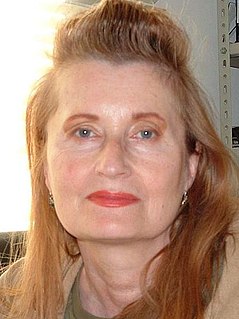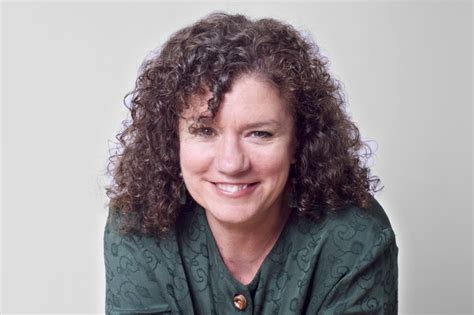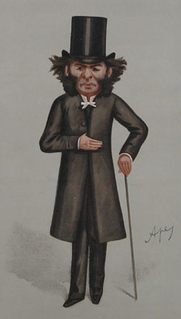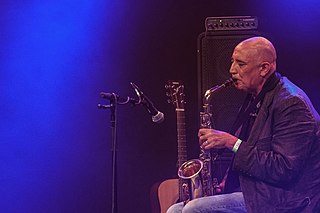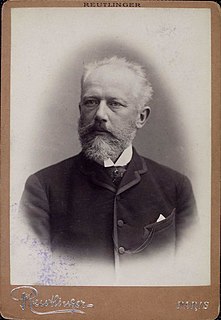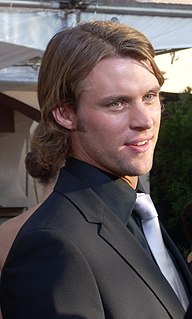A Quote by Elfriede Jelinek
My training in music and composition then led me to a kind of musical language process in which, for example, the sound of the words I play with has to expose their true meaning against their will so to speak.
Related Quotes
I'm chasing a kind of language that can be unburdened by people's expectations. I think music is the primary model-how close can you get this language to be like music and communicate feeling at the base level in the same way a composition with no words communicates meaning? It might be impossible. Language is always burdened by thought. I'm just trying to get it so it can be like feeling.
Although music appeals simply to the emotions, and represents no definite images in itself, we are justified in using any language which may serve to convey to others our musical expressions. Words will often pave the way for the more subtle operations of music, and unlock the treasures which sound alone can rifle, and hence the eternal popularity of song.
Being a slow reader would normally be a deficiency; I found a way to make it an asset. I began to sound words and see all those qualities - in a way it made words more precious to me. Since so much of what happens in the world between human beings has to do with the inconsideration of language, with the imprecision of language, with language leaving our mouths unmediated, one thing which was sensuous and visceral led to, in the use of language, a moral gesture. It was about trying to use language to both exemplify and articulate what good is.
Sound words can't be understood through formal study of the language alone. They're felt when you immerse yourself in the culture or lifestyle that becomes a part of you. The Japanese language is abundant with onomatopoeia. Even though I've lived in Japan a long time, sound words are still an uncertain territory. And I think new words are being created every day. Even when I don't know a word I can sometimes connect it to a meaning using the sensations produced by the sounds, which feels like I'm playing with words.
Dare I speak ,to oppressed and opressor in the same voice? Dare I speak to you in a language that will move beyond the boundaries of domination- a language, that will not bind you, fence you in, or hold you? Language is also a place of struggle. The oppressed struggle in language to recover ourselves, to reconcile, to reunite, to renew. Our words are not without meaning, they are an action, a resistance. Language is also a place of struggle.
One listens to a piece of great music, say, and feels deeply moved by it, and wants to put this feeling into words, but it can't be put into words. That's what - the music has already supplied the meaning, and words will just be superfluous after that. But it's that kind of verbal meaning that can't be verbalized that I try to get at in poetry.
The 'idea' for the poem, which may come as an image thrown against memory, as a sound of words that sets off a traveling of sound and meaning, as a curve of emotion (a form) plotted by certain crises of events or image or sound, or as a title which evokes a sense of inner relations; this is the first 'surfacing' of the poem. Then a period of stillness may follow.
Music is a universal language insofar as you don't need to know anything else about a musician that you are playing with other than that they can play music. It doesn't matter what their music is, you can find something that you can play together, with what their culture is. The dialect part of it comes into play, but nothing like the differentiation that language sets up, for example.
The lyrics are not an important thing to me. In fact, it can be a distraction. If I knew the language enough to know it was a horrible love song with stupid lyrics - like most of the popular songs are today in the English language that I hear - then it would be much more of a turnoff then if it would allow me to interpret it from the expressive capabilities of the vocalizing or of the sound itself, which allows me to create my own meaning for it, which elevates it into a higher piece of work for me.
The new "ambiguity" means, in a way adjudged favorable to literary, poetic, intellectually and psychologically well-devised and praiseworthily executed linguistic performance, uncertainty of meaning, or difficulty for the interpreter in identifying just what the meaning in question is: it means the old meanings of ambiguity with a difference. It means uncertainty of meaning (of a word or combination of words) purposefully incorporated in a literary composition for the attainment of the utmost possible variety of meaning-play compressible within the verbal limits of the composition.
How can one express the indefinable sensations that one experiences while writing an instrumental composition that has no definite subject? It is a purely lyrical process. It is a musical confession of the soul, which unburdens itself through sounds just as a lyric poet expresses himself through poetry...As the poet Heine said, 'Where words leave off, music begins.'
Then I speak to her in a language she has never heard, I speak to her in Spanish, in the tongue of the long, crepuscular verses of Díaz Casanueva; in that language in which Joaquín Edwards preaches nationalism. My discourse is profound; I speak with eloquence and seduction; my words, more than from me, issue from the warm nights, from the many solitary nights on the Red Sea, and when the tiny dancer puts her arm around my neck, I understand that she understands. Magnificent language!
